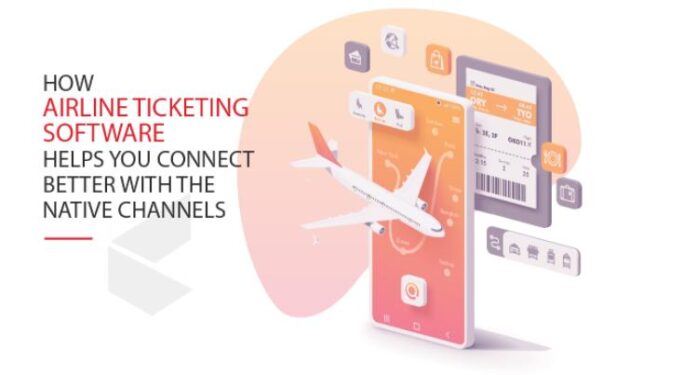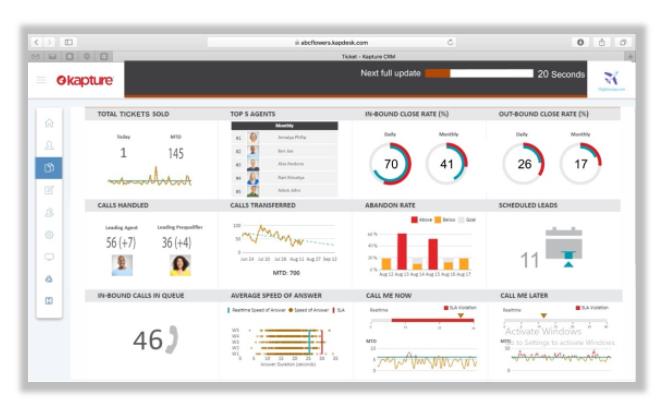By providing customer service that goes above and beyond what’s expected, airlines display the qualities of respect and civility. Customer relationship management (CRM) systems or CRM in the airline industry is to gather and use the information to personalize passenger experiences and exhibit shared values to deliver a greater level of customer service, and loyalty.
Airlines can help travellers feel known and understood by analysing past customer behaviour and forecasting likely future behaviour using an airline CRM system.
The previous trip data assists airlines in determining other destinations of interest, allowing them to send passengers personalized offers for travel to both new and frequently visited destinations.
Airlines management system can further personalize passenger offerings because CRMs track extra transactions such as WiFi and upgrades.
A frequent traveller, for instance, who buys WiFi on every flight would surely appreciate an offer from the airline to buy a cost-saving monthly WiFi pass.
Passengers who experience delays and problems on every flight or connection they make during their journey may understandably be frustrated.
Their frustration will only escalate if each airline representative they see is just aware of the current issue instead of the whole picture.
Airlines can more quickly and effectively offer compensation, such as additional airline points or a discount on future travel, by using an airline CRM system to identify passengers who experienced multiple trip issues.
By keeping track of these facts and anticipating traveller requirements and desires, the airline can increase the likelihood that the passenger will appreciate their assistance and book travel with them again.
Airline Management System makes it easier to get to know passengers and enhances brand loyalty.
Table of Contents
Benefits of CRM in the Airline industry
1. Improved Control in All Departments
Every department incurs a variety of costs as a result of its operations. Material expenses, labor costs, and operations management are common examples.
Before making any decisions, it is critical to properly review all departments.
2. Airline CRM system
It allows for a birds-ey perspective of all operations across several industries. This makes it easier to spot flaws and fix them fast. CRM is a dynamic software that increases overall visibility and adds to its functionality by being compatible with a wide range of portable devices.
3. Data Protection
It is critical in the aviation industry that data is kept confidential and secure. The airline management system is meant to provide users with a high level of confidence. There are technologies that allow certain users to examine the data of the firm. Other advantages include the ease with which maintenance may be done, the use of a single data protection method for the complete data environment, and the ability to predict oncoming threats based on relative changes. The aviation industry can use CRM to streamline all of its activities and provide excellent customer service.
4. Automation of Processes
The aviation division’s overall goal is to reduce unnecessary stages and increase production. The Airline CRM analytics automates the entire process, allowing you to keep track of costs, operations, and maintenance. The frequent changes in configuration are simply handled, and each operation may be completed without the use of a dedicated system. The aviation sector has rigorous standards for fleet dependability and inventory level monitoring.
Because it is compatible with mobile devices, users can check the software at any time and from anywhere.
Finally, we understand that the aviation business conducts operations that affect several portions of the world, necessitating the use of multiple currencies. If the company used many plugins for this, it would be a time-consuming operation.
Airline CRM Integration Builds Customer Loyalty
It takes time to log passenger data, and not all customers offer complete information. Airlines may communicate with customers as well as personalize and track customer communications by connecting CRM with a business contact centre. Integration of systems provides airlines with all of the information they need to personalize each passenger experience and strengthen loyalty while automating the process improves efficiency.
Passengers can receive text messages as soon as a delay or gate change occurs by integrating an SMS API. The airline gives a more immediate and customized service, which helps develop loyalty, by making an uncomfortable situation simpler.
This form of SMS integration enables better two-way contact between passengers and airline employees. Travellers have more control over trip planning because texting is easier on the go than making phone calls. They can send a text to confirm travel updates or changes, or to request additional assistance. Chatbots can also be used by airlines to swiftly answer common traveller questions like “What gate should I go to?” or “Are there any restriction for my carry-on bags?” With missing bags being a typical cause of aggravation, CRM with SMS integration allows airlines to track bags and update consumers on their status.
People are loyal when they believe a company is looking out for their best interests.
Customer relationship management on airlines makes it easier to get to know passengers and enhances brand loyalty. Airlines make it even easy for travellers to choose to fly with them by making the process of gathering passenger information as simple as possible.
Learn how travel and hospitality companies use CRM and other systems to deliver a consistent client experience.



